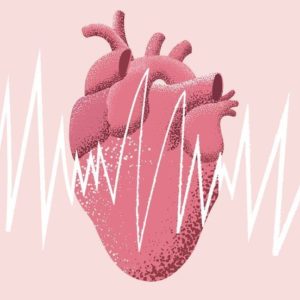
5 min|Dr. Taylor Green
How Stress Can Wreak Havoc On Your Thyroid
EducationMany of us are aware of the more obvious forms of stress – driving in morning traffic, pressing work deadlines, financial troubles, strained family dynamics, and the many other emotional challenges of everyday modern life.
Other factors not commonly thought of as “stress” include blood sugar fluctuations, environmental toxins, infections, gut problems, food intolerances, and inflammation. ANY stress, where it be emotional, psychological, environmental, or physical taxes the adrenals and causes these glands to pump out more stress hormones. These include cortisol, norepinephrine and epinephrine – also known as adrenaline.
Temporary stress is a given, but when its ongoing, it affects everything – particularly our thyroid
Cortisol and your other stress hormones feedback to the hypothalamus and pituitary (regulatory centres in the brain), redirecting your body’s normal processes to focus only on overcoming the stressor at hand and downregulating many other functions not deemed essential at this time. Digestive function, immunity, and thyroid function are put on hold until the stressful episode has passed. With repeated stress, our body’s are unable to return to a state of homeostasis – wreaking havoc on both the adrenal glands and the thyroid as they are unable to keep up.
The thyroid is a small butterfly shaped gland found at the base of the neck. But don’t let its size fool you.
The thyroid is responsible for MANY body functions such as:
- Heart rate
- Body weight & metabolism
- Growth and development
- Cognition, Mood
- Body temperature
- Muscle strength
- Menstrual cycle
- Cholesterol levels
- Nervous system regulation
Symptoms of sub-optimal thyroid function include:
- Hair loss
- Fatigue
- Constipation
- Muscle aches and weakness
- Dry skin
- Weight gain & bloating
- Mood disturbances including depression
- Irregular or heavy menstrual periods
- Temperature sensitivity
- Brain fog
- Brittle hair and nails
Slowed Thyroid Hormone Production
Cortisol signals the brain to depress hypothalamus and pituitary function. Since both regulate thyroid hormone production, this is suppressed as well. Inflammatory cytokines released during the stress response have been shown to reduce levels of thyroid stimulating hormone (TSH). Additionally, TNF-alpha decreases the conversion of T4 to active T3, reduces thyroid hormone uptake at tissues, and decreases sensitivity of the thyroid to TSH.
Reduced Conversion of T4 to T3
T4 and T3 are the primary hormones produced by the thyroid gland. The majority produced is T4, which is inactive and must be converted to the active T3 form before it can be used by the body. Cortisol, and the previously mentioned cytokines can block this T4 to T3 conversion, causing T3 levels to fall. Moreover, stress increases the conversion of thyroid hormone into reverse T3, an inactive and unusable form of thyroid hormone.
Thyroid Hormone Resistance
Similar to insulin resistance seen in diabetes where receptor sites on cells no longer respond to insulin, cells can become resistant to thyroid hormone. Often thyroid hormone levels are normal on labs. In order for circulating thyroid hormone to carry out its metabolic processes, receptors on cells must first bind the hormone to allow its entry. Inflammatory cytokines can suppress thyroid receptor site sensitivity.
Increased Risk of Autoimmune Disease
Chronic adrenal stress weakens immune system regulation and immune barriers in the GI tract and other areas of the body. When particles can escape from the intestines and circulate in areas they do not belong, they cause an immune response that predisposes us to developing autoimmune conditions, including Hashimoto’s Thyroiditis.
Stress-Induced Hormone Imbalances
Prolonged high cortisol released with chronic stress impacts the liver’s ability to clear excess estrogens from the blood. Certain estrogen metabolites can be toxic to the body if they are not removed efficiently. Furthermore, excess estrogen can increase thyroid binding globulin levels (TBG), the protein responsible for transporting thyroid hormone to tissues in the body. When thyroid hormone is bound to TBG, it is inactive. Thus, when TBG levels are high, free thyroid hormone levels and/or activity decline. Birth control pills and synthetic estrogen replacement can also increase TBG.
Fortunately, there are many ways in which a Naturopathic Doctor can work with you to assess and treat stress, adrenal and thyroid function by addressing diet & lifestyle, and utilizing many modalities such as botanical, nutraceutical, IV, and pharmacological modalities where needed.
Consult with an ND now if you are concerned about how chronic stress may be affecting your health!
References
El-Kaissi, S., Buhary, B., & Sherbeeni, S. (2017). Effects of Exogenous Insulin Therapy on Thyroid Nodule Size in Patients with Type 2 Diabetes Mellitus. Open Journal of Thyroid Research, 1(1), 004-006. doi:10.17352/ojtr.000002
Kimura, H., & Caturegli, P. (2007). Chemokine Orchestration of Autoimmune Thyroiditis. Thyroid, 17(10), 1005-1011. doi:10.1089/thy.2007.0267
Mizokami, T., Li, A. W., El-Kaissi, S., & Wall, J. R. (2004). Stress and Thyroid Autoimmunity. Thyroid, 14(12), 1047-1055. doi:10.1089/thy.2004.14.1047
Myers, A. (2018). The thyroid connection: Why you feel tired, brain-fogged, and overweight - and how to get your life back. New York: Little, Brown and Company.
Rettori, V., Jurcovicova, J., & Mccann, S. M. (1987). Central action of interleukin-1 in altering the release of tsh, growth hormone, and prolactin in the male rat. Journal of Neuroscience Research, 18(1), 179-183. doi:10.1002/jnr.490180125
Rezzonico, J., Rezzonico, M., Pusiol, E., Pitoia, F., & Niepomniszcze, H. (2008). Introducing the Thyroid Gland as Another Victim of the Insulin Resistance Syndrome. Thyroid, 18(4), 461-464. doi:10.1089/thy.2007.0223
Ranabir, S., Reetu, K. (2011). Stress and hormones. Indian J Endocr Metab, 15:18-22
Steingold, K. A., Matt, D. W., Deziegler, D., Sealey, J. E., Fratkin, M., & Reznikov, S. (1991). Comparison of Transdermal to Oral Estradiol Administration on Hormonal and Hepatic Parameters in Women with Premature Ovarian Failure. The Journal of Clinical Endocrinology & Metabolism, 73(2), 275-280. doi:10.1210/jcem-73-2-275
Walter, K. N., Corwin, E. J., Ulbrecht, J., Demers, L. M., Bennett, J. M., Whetzel, C. A., & Klein, L. (2012). Elevated thyroid stimulating hormone is associated with elevated cortisol in healthy young men and women. Thyroid Research, 5(1), 13. doi:10.1186/1756-6614-5-13

Dr. Taylor Green
Dr. Taylor Green has always been fascinated by the intricacies of nature, the human body and health sciences. For her, health is not defined by the absence of disease, but the balance between mind, body, and environment.
Learn More 
Related Articles

5 min|Rhiannon Lockhart
The Gut-Skin Connection: How Your Gut Health Affects Your Skin
Gut Health, Skin Health
5 min|Rhiannon Lockhart
How Your Gut Microbiome Affects Weight Loss, Hormones, and Overall Health
Nutrition, Health, Hormones


